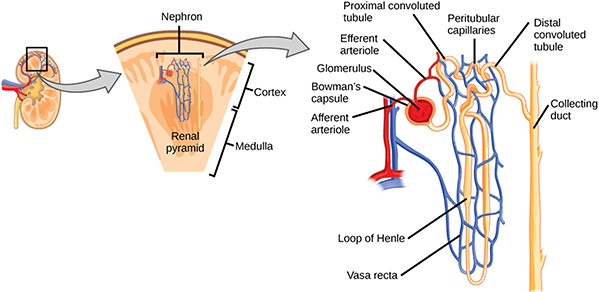
Researchers from the Department of Engineering are collaborating with industry and academia to develop a device to improve the testing of kidney disease drugs.
I'm pleased to have this opportunity to work together with clinicians and biologists to translate our advanced engineering capability into industrial solutions. I hope this research will ultimately have a positive impact on improving health outcomes for the patient and lowering drug costs.
Dr Shery Huang
State-of-the-art microfluidics technology developed by Dr Shery Huang, Lecturer in Bioengineering, and her team, will be merged with world-class expertise in induced pluripotent stem cell (iPSC) technology and kidney disease from the University of Bristol, the Mario Negri Institute and Evotec.
The goal is to develop a functional and novel drug discovery device – ‘Nephron-on-a-Chip’, also known as NEPLEX – that reflects both the filtration area as well as the resorption area of a human kidney.
Dr Huang and her lab will develop the glomerular (filter) part of the chip.
Professor Moin Saleem and his group from the University of Bristol will contribute human kidney cell lines focusing on the resorption unit, and Dr Christodoulos Xinaris and his colleagues from the Mario Negri Institute will provide human iPSC lines and expertise.
Evotec will add its state-of-the-art iPSC and kidney disease platforms.
The novel device will allow testing of drug candidates under conditions simulating human nephrons – microscopic structures in the kidney where urine is produced – already in the pre-clinic (before clinical trials) and thereby improve and accelerate drug discovery in the field of kidney diseases.
Dr Huang said: “I'm pleased to have this opportunity to work together with clinicians and biologists to translate our advanced engineering capability into industrial solutions. I hope this research will ultimately have a positive impact on improving health outcomes for the patient and lowering drug costs."
Dr Cord Dohrmann, Chief Scientific Officer of Evotec, said: “We are very pleased to have teamed up with three leading academic institutions in such an exciting area of medicine. Developing fully human and functional organotypic systems for pre-clinical drug discovery, with the possibility to include human genetics, will be a major step towards personalised and more disease-relevant drug candidates.”

